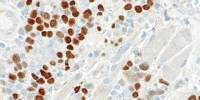According to a new study, the omicron subvariants that have recently gained dominance pose a severe danger to the efficacy of the new boosters, render antibody therapies useless, and could result in an increase in breakthrough infections.
The BQ.1, BQ.1.1, XBB and XBB.1 omicron subvariants are the most immune evasive variants of Covid-19 to date, according to scientists affiliated with Columbia University and the University of Michigan. These variants, taken together, are currently causing 72% of new infections in the U.S., according to data from the Centers for Disease Control and Prevention.
The researchers discovered that these subvariants are “barely susceptible to neutralization” by the vaccines, including the novel omicron boosters, in a report that was published online Tuesday (December 13, 2022). People who received the vaccine and experienced breakthrough infections with earlier omicron variants also exhibited lower immune responses to the subvariants.
“Together, our findings indicate that BQ and XBB subvariants present serious threats to current COVID-19 vaccines, render inactive all authorized antibodies, and may have gained dominance in the population because of their advantage in evading antibodies,” the scientists wrote.
The vaccines have been demonstrated to be efficacious in reducing hospitalization and severe omicron sickness even though these subvariants are more prone to result in breakthrough infections, the researchers stated.
Blood samples from individuals who received three or four doses of the original vaccines, those who received the new omicron boosters after receiving three doses of the original vaccines, and those who received the original shots but also experienced breakthrough infections caused by the BA.2 or BA.5 subvariants were all examined in the study.
For people who received the omicron boosters, antibodies that block infection were 24 times lower against BQ.1, 41 times lower against BQ.1.1, 66 times lower against XBB and 85 times lower against XBB.1 compared to their performance against the ancestral strain that emerged in Wuhan, China, in 2019.
U.S. health officials are hoping there’s enough immunity in the population from vaccination, infection or both to prevent the massive surge of infections and hospitalizations the U.S. suffered last winter when omicron first arrived.
Dr. Anthony Fauci
The study found that in contrast to those who received three or four doses of the initial immunizations, those who received the omicron boosters had somewhat greater antibody levels against all of these subvariants.
Even while neutralization was substantially lower against the subvariants than the ancestral strain in those who had received vaccinations and developed breakthrough infections than in any other group in the research.
The subvariants have evolved away from previous versions of omicron in dramatic fashion. BQ.1.1, for example, is about as different from omicron BA.5 as the latter subvariant is from ancestral Covid strain, according to the study.
“Therefore, it is alarming that these newly emerged subvariants could further compromise the efficacy of current COVID-19 vaccines and result in a surge of breakthrough infections, as well as re-infections,” the scientists wrote.
XBB.1, however, presents the biggest challenge. It is about 49 times more resistant to antibody neutralization than the BA.5 subvariant, according to the study. XBB.1, fortunately, is currently causing no more than 1% of infections in the U.S., according to CDC data.
BQ.1.1 and BQ.1 represent 37% and 31% of new infections respectively, while XBB is causing 4.7% of new infections, according to CDC data.
Antibodies ineffective
Key antibody drugs, Evusheld and bebtelovimab, were “completely inactive” against the new subvariants, according to the study. These antibodies are used primarily by people with weak immune systems.
A combination of antibodies called Evusheld is used to prevent COVID in those with weakened immune systems who don’t respond well to vaccinations. Bebtelovimab is used to stop Covid from progressing to a serious condition in people who need organ transplants and other people who are unable to take other medications.
“This poses a serious problem for millions of immunocompromised individuals who do not respond robustly to COVID-19 vaccines,” the scientists wrote. “The urgent need to develop active monoclonal antibodies for clinical use is obvious.”
Bebtelovimab’s authorization by the Food and Drug Administration has already been revoked on a national level since it is no longer effective against the predominant omicron variations in the United States. The only permitted treatment for pre-exposure prophylaxis is evusheld.
New Covid infections increased by about 50% to 459,000 for the week ended Dec. 7, according to CDC data. Covid deaths increased 61% to nearly 3,000 during the same week. Hospital admissions have plateaued at 4,700 per day on average after rising in November, according to the data.
White House chief medical advisor Dr. Anthony Fauci, in a press briefing last month, said “U.S. health officials are hoping there’s enough immunity in the population from vaccination, infection or both to prevent the massive surge of infections and hospitalizations the U.S. suffered last winter when omicron first arrived.”
















